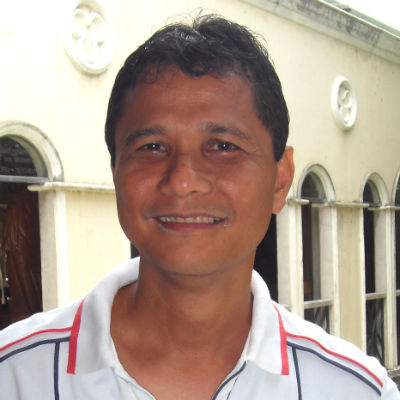SUMMARY
This is AI generated summarization, which may have errors. For context, always refer to the full article.
 Most Christians, if asked what the resurrection of Christ means, would most likely answer that it proves that Jesus was no ordinary prophet but a divine being. Maybe, the resurrection answers an all too human need for a guarantee that we have placed our faith in the right person, the God who has power over death.
Most Christians, if asked what the resurrection of Christ means, would most likely answer that it proves that Jesus was no ordinary prophet but a divine being. Maybe, the resurrection answers an all too human need for a guarantee that we have placed our faith in the right person, the God who has power over death.
Many argue that other teachers may have also inspired millions of followers and other heroes may have also performed equally or even more noble deeds but none of them rose from the dead. The resurrection thus serves as the clinching argument for all Christian tenets.
While such understanding may be a hundred percent orthodox, it may be deficient in inspiring people to draw out the social and ethical implications of the resurrection. It may assure us that Jesus is divine but it does not show what kind of God he is. It may demonstrate God’s power but not the values the Son of God lived for.
The root of such deficiency is the failure to connect the earthly life of Jesus and the resurrected Jesus. Such exclusive emphasis on the resurrection may imply that Jesus could have lived another lifestyle and as long as a post-mortem bliss is the story’s denouement, then everything is right with our faith.

For good measure, those who love melodramas with crystal clear endings would have wanted the risen Jesus to have shown himself to the temple authorities, the Sanhedrin, Pilate, and the soldiers and triumphantly declare, “Didn’t you crucify me last Friday? Look at me now and touch my hands.” But the Gospels do not follow the worn-out plots of telenovelas. The Gospels simply narrate to us that the Son of God became human and lived a life of self-sacrificing love. He died but rose from the dead. His resurrection is divine vindication of how he lived his life.
The pre-Easter Jesus chose the value of compassion for the poor over legalism, understanding sinners above condemnation, a faith that does justice more than mere external formality in rituals. He cured the sick, expelled enslaving demonic forces, gave food to the hungry and denounced those responsible for the exclusion of many from the mainstream of society.
This radical character of his teaching led to his cruel death. The obvious irony is that he who came down so that we may have life in its fullness suffered an ignominious death. But the story did not end with his death: the resurrection was God’s affirmation of the values that Jesus lived.
Crucified people
What is the implication if we relate Jesus’ earthly life and his resurrection? Today, there are the crucified people whom we have to raise up. The term “crucified people” is often used by Ignacio Ellacuria, a Jesuit philosopher and theologian who was martyred in El Salvador during the time of its military dictatorship. He once wrote, “Among all the signs we see, in every age, there is always one that stands out. That sign is the historically crucified people who are always present although the historical method of crucifixion constantly changes.”
Isn’t this a sobering thought — that there are always the crucified people, the form of crucifixion changes but the execution goes on?
So who are the crucified people today who need their own personal Easter event? They are the people mired in a dehumanizing situation that they cannot get out of. They are the ones who greet every new day not as another day to cherish but one more day nearer to death.
They may be the Kristel Tejadas whose poverty prevents them from getting good education. Surveys show that extremely few of those who enroll for Grade 1 eventually reach college, and thus the saga of poverty continues What about those women forced by circumstances to trade their flesh for a measly sum?
The crucified may be the children whose future is jeopardized because their poor parents cannot afford to give them basic nutrients and medicine. They can also be those people who have been traumatized by ecological disasters or the informal settlers who are manipulated by politicians.
The challenge for believers in the resurrection of Jesus is how to take the crucified out of their crosses. Doing so may bring crosses into their own lives but the message of the resurrection is that it is worth the sacrifice.
Preferential option for the poor
In this connection, people are making a sharp contrast between the utter simplicity of the newly-elected Pope Francis and the opulence of some clerics. On one hand, people cannot have enough of the Pope Francis who now lives in a house together with other priests and not in the traditional apostolic palace, wears ordinary shoes for his papal inauguration, adorns his cassock with no papal cape, refuses to ride in a limousine, and celebrates the Eucharist minus the pomp and pageantry.
Critics may say that these gestures are merely symbolic. Maybe, but was not Jesus’ choice of a colt over a horse in his entrance to Jerusalem also symbolic? On the other hand, many people have enough of clerics who drive flashy cars and mingle only with the rich and famous.
Yet kibitzers who are quick in drawing sweeping statements suggest that, when Cardinal Jorge Mario Bergoglio was the Archbishop of Buenos Aires, he was critical of liberation theology. But they fail to state which aspect of liberation theology he disapproved of.
Surely, it is not the idea of preferential option for the poor. After all, option for the poor is God’s own option. It’s how Jesus lived his life. To condemn this idea is to condemn the choices of Jesus.
Jesus came that we may have life to the full. St Iranaeus, a second century martyr, once wrote, “The glory of God is the human being fully alive.” Msgr Oscar Romero, a modern day martyr who died in defense of the poor would paraphrase this famous line from St Iranaeus, “The glory of God is the poor fully alive.” – Rappler.com
Fr Ramon D. Echica is the Dean of Studies of the San Carlos Major Seminary. He obtained his doctorate in Sacred Theology from the Catholic University of Leuven (Katholieke Universiteit Leuven) in 1998.
Add a comment
How does this make you feel?
There are no comments yet. Add your comment to start the conversation.